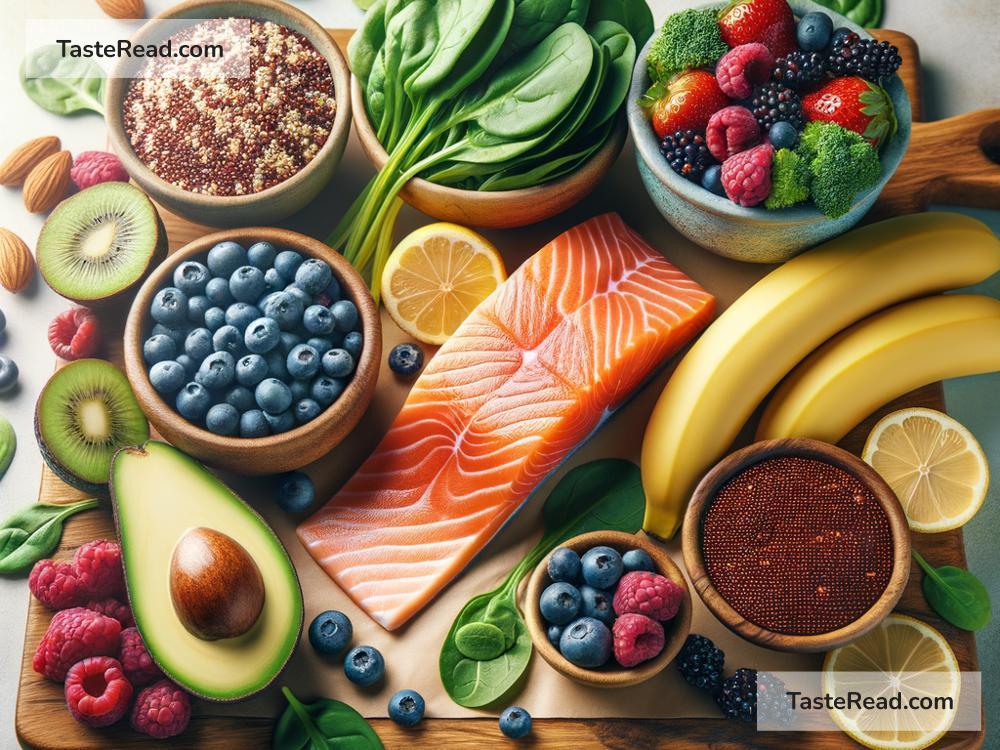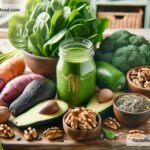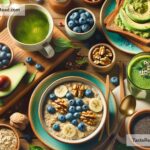Boost Your Aerobic Capacity with Smart Food Choices
If you want to run longer, bike faster, or simply stay active without feeling drained, improving your aerobic capacity is key. Aerobic capacity refers to your body’s ability to use oxygen efficiently during exercise. For better endurance and energy, your diet matters as much as your workouts. The right foods can fuel your body, improve oxygen delivery, and support muscle recovery. Let’s explore easy and nutritious options that can help you maximize your aerobic potential!
Why Food Matters for Aerobic Performance
When you exercise, your body relies on oxygen to convert nutrients into energy. This process fuels your muscles and keeps you moving. Aerobic activities—like jogging, swimming, or cycling—put extra demand on your heart and lungs to deliver oxygen to working muscles. Eating healthy foods that support this system makes a big difference. The right nutrients can:
- Increase energy levels
- Improve blood circulation
- Reduce fatigue
- Build stronger muscles
- Speed up recovery after exercise
Here are some superstar foods to include in your diet to boost your aerobic capacity.
1. Carbohydrates: Your Primary Energy Source
Carbohydrates are your body’s main fuel during aerobic exercises. They’re broken down into glucose and stored in your muscles as glycogen. Low glycogen levels can leave you feeling tired and sluggish, so eating enough carbs is essential.
Choose whole-grain and nutrient-rich carbs, rather than sugary or refined options:
– Brown rice
– Quinoa
– Oatmeal
– Sweet potatoes
– Whole-grain bread
Before a workout, eat a small portion of a carb-rich food to keep your energy up. For example, a banana or a bowl of oatmeal is a great pre-exercise snack.
2. Protein: Build and Repair Muscles
Protein doesn’t directly fuel aerobic exercise, but it plays a key role in muscle repair and recovery. After a workout, your muscles need protein to heal and strengthen. This ensures you can train harder over time and improve your endurance.
High-quality protein sources include:
– Lean meat (like chicken or turkey)
– Eggs
– Fish (especially salmon, which also contains heart-healthy omega-3 fats)
– Legumes (like lentils and chickpeas)
– Greek yogurt
Including protein after workouts can also help prevent muscle soreness and speed up recovery.
3. Healthy Fats: Sustainable Energy
While carbs provide quick energy, healthy fats give you sustained energy for longer sessions. Fats slow down glucose absorption, which keeps your blood sugar steady over time. This is especially helpful for endurance athletes.
Focus on heart-healthy fats found in:
– Avocados
– Nuts and seeds (like almonds, chia seeds, and flaxseeds)
– Olive oil
– Fatty fish (like mackerel or tuna)
Snack on a handful of nuts or spread avocado on whole-grain toast to get a good dose of healthy fats.
4. Iron-Rich Foods: Supports Oxygen Delivery
Iron is critical for aerobic capacity because it helps your red blood cells carry oxygen to your muscles. Without enough iron, you may feel weak or fatigued, especially during exercise. This condition is called iron deficiency anemia and is common among athletes.
Iron-rich foods include:
– Red meat
– Spinach
– Broccoli
– Lentils
– Pumpkin seeds
Pair iron-rich foods with vitamin C (like oranges or strawberries) to help your body absorb iron better.
5. Beets: A Nitric Oxide Powerhouse
Beets are gaining popularity as a superfood for improving endurance. They’re rich in nitrates, which produce nitric oxide in your body. Nitric oxide helps relax blood vessels and improve blood flow, making it easier for oxygen to reach your muscles.
Drink beet juice or add cooked beets to your salad before a workout for an extra endurance boost.
6. Berries: Antioxidant Heroes
Aerobic activities create oxidative stress in your body, which can lead to muscle fatigue. Foods rich in antioxidants fight this stress and support recovery. Berries like blueberries, raspberries, and strawberries are packed with antioxidants and vitamins.
Snack on fresh berries or add them to your smoothies, oatmeal, or yogurt for a tasty recovery treat.
7. Hydration: Water and Electrolytes
Staying hydrated is just as important as eating the right foods. During aerobic exercise, you sweat and lose water and electrolytes such as sodium and potassium. Dehydration can quickly drain your energy and impact performance.
Make sure you drink plenty of water throughout the day, especially before, during, and after exercise. You can also replenish electrolytes with foods such as:
– Bananas (high in potassium)
– Coconut water
– Leafy greens
– Oranges
Avoid sugary sports drinks and focus on natural hydration sources.
8. Green Tea: A Natural Energy Booster
Green tea contains caffeine, which can give you an energy boost, and antioxidants that reduce inflammation. Drinking green tea before a workout might help improve focus and endurance. The moderate caffeine content also helps mobilize fat for energy during exercise.
Final Thoughts
What you eat has a huge impact on your aerobic capacity and overall fitness. By focusing on foods that fuel your body, support recovery, and enhance oxygen delivery, you’ll feel more energetic and ready to tackle workouts with confidence.
Combine these foods with regular aerobic training, plenty of sleep, and a balanced lifestyle, and you’ll be well on your way to stronger endurance and better performance. Your body is like a machine: fuel it wisely, and it will perform at its best!
Now grab a healthy snack and keep moving toward your fitness goals!


